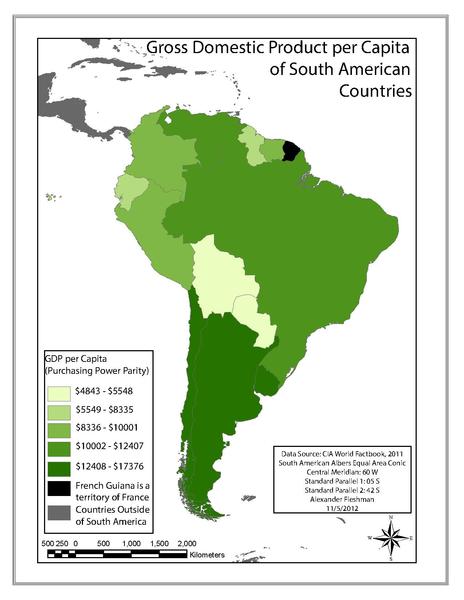
Crossing the Pacific
The Quartz online news publication referred to South America as the new “soft power and economic battleground” for the world’s second- and third-largest economies—China and Japan, respectively—on Monday, as both Xi Jinping and Shinzo Abe crossed the Pacific Ocean this month. Chinese president Xi completed his nine-day tour last week, while Abe left Mexico for Trinidad and Tobago on Sunday, after closing deals with Mexican state oil company Pemex. The longstanding rivalry between China and Japan continues and, even though research shows that favorable views toward China have declined in Brazil and Argentina since 2011, both nations appear to be well regarded throughout the region.
Overall, the South American continent is valued by Asia as resource-rich, but both Xi and Abe have their own national agendas that are beyond monetary matters. Following many years of cheap Chinese exports to the region, President Xi spoke with a delegation of over ten Latin American and Caribbean leaders at a closed meeting in Brazil to consolidate China’s reputation, and presented his nation as an alternative to the still-dominant United States. Following the meeting, Venezuelan president Nicolas Maduro represented the sentiment of the entire delegation when he expressed support for the “mutual respect between a world giant like China and Latin America.” During his junket, Xi also proposed the establishment of a US$20 billion infrastructure fund and offered member nations of the Community of Latin American and Caribbean States (CELAC) a US$10 billion line of credit.
Meanwhile, President Abe’s ongoing tour is considered to be along diplomatic lines, as he is likely to speak about Japan’s bid for a rotating seat on the United Nations Security Council—staunchly opposed by the Chinese government—while in the Caribbean, and is expected to capitalize upon Japan’s involvement with the U.S.-led Trans-Pacific Partnership (TPP) to garner good will while visiting fellow TPP member nations Peru and Chile. Furthermore, Abe is prepared to sign agreements with both Brazil and Colombia in direct response to Beijing’s actions in the East and South China Seas.
Rising prices
Also this month, the Swiss-based financial services corporation Credit Suisse reported the increase of its 2014 inflation forecasts for all South American countries except Argentina, explaining that “the impact of those price pressures on rates should be palpable.” In its July 22 announcement, Credit Suisse referred to the examples of Colombia, Peru and Chile, citing “accelerating” inflation as the issue. Additionally, Credit Suisse increased its 2015 inflation forecast for Latin America by a half-point to 9.3 percent.
Eighth time for Argentina?
Although it observed a thriving metropolitan economy in the Argentinian capital of Buenos Aires, London’s Economist publication still considered the possibility of Latin America’s third-largest economy defaulting for the eighth time on a payment to U.S. hedge fund NML Capital that is due on July 30. Following a ruling by a U.S. district court judge in 2012, after NML Capital litigated for payment of the full principal plus interest, Argentina has struggled with a set of limited choices, as the southeastern nation’s overall debt is also pertinent.
Argentina’s current quandary can be traced back to 2001, when NML became involved after Argentina defaulted on US$95 billion of external debt that year—the hedge fund gained what the Economist calls “cheap debt.” As Argentina attempted to rectify its economic situation over subsequent years, it exchanged 93 percent of defaulted debt for performing securities in 2005, and again in 2010. Argentina’s president, Cristina Fernández de Kirchner, and government are opposed to the NML’s demand for full payment, and have cited the self-imposed Rights Upon Future Offers (RUFO) clause that forms part of its restructured bonds arrangement as a foremost part of its reasoning. Argentina explained that it risks an influx of other bondholder claims if it pays NML the US$1.3 billion with interest.
In what has become an increasingly complicated situation, Argentina is currently negotiating both bondholders and holdout creditors, as Judge Thomas Griesa’s deadline looms overhead. If Argentina misses the July 30 deadline, it will be in a position known as a “soft default,” as legal issues have impeded payment rather than an inability to pay. If Argentina defaults, it will not regain access to the international dollar-bond markets, which was removed 13 years ago, and, for this reason, Credit Suisse researcher Casey Reckman believes that “it makes more sense for Argentina to negotiate a settlement.” Of particular concern to Argentina is its diminishing foreign reserves—recently worth US$29 billion—and Credit Suisse stated on July 18 that the “best-case scenario” involves Argentina paying off as much debt as possible through the issuance of new bonds so that the reserves remain untouched.
As Japan’s president continues his diplomatic trip through South America—while China’s leader prepares to follow through with a set of expensive commitments—the world does not have long to wait for Argentina’s critical decision.
See more at: http://www.daynews.com/world/2014/07/spotlight-south-america-argentinas-deadline-approaches-24200#sthash.Dr6qtzQI.dpuf
